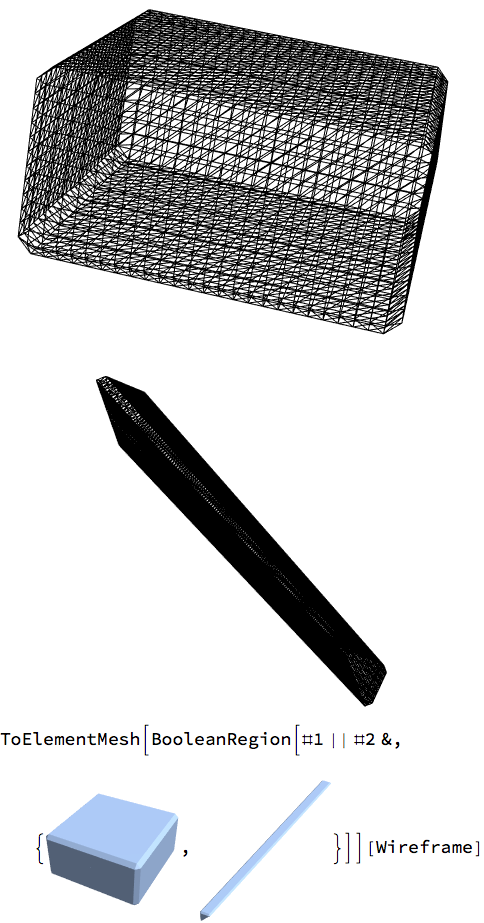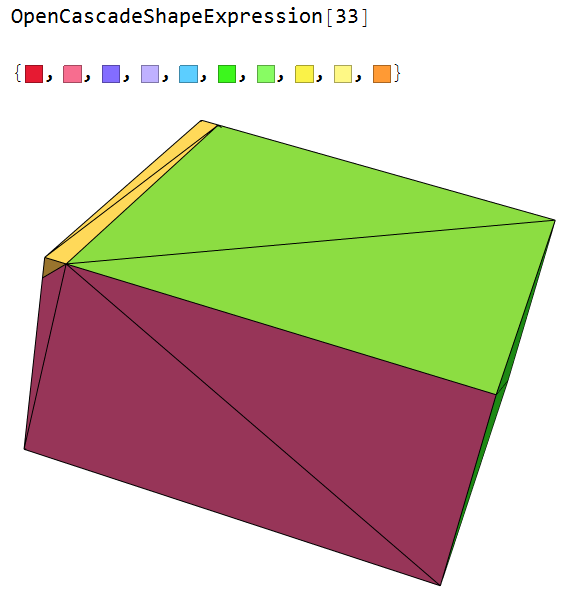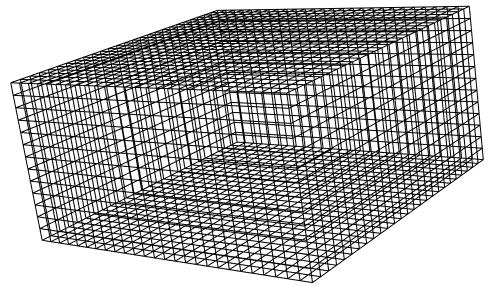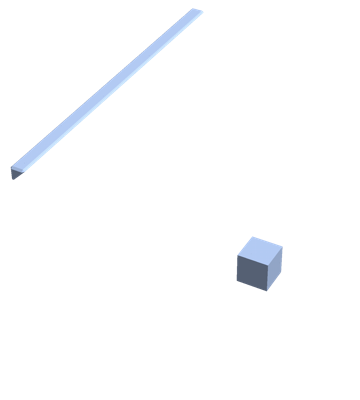Bug introduced in 12.0 or earlier and persisting through 12.1.0
Warning: The below code may crash your kernel!
I am trying to make a (simple) 3D mesh of a box for a FEM solution (I am using MMA 12.1 on a Mac). By default, the mesh "bevels" the edges of my box. So, I try to follow this, at least as closely as possible: ElementMesh from ImplicitRegion cuts corners of region The idea is to mesh the box edges separately (once each) and merge all of them into a single box with much sharper corners. But the first merge (RegionUnion) fails. Here is my simplified code which demonstrates the issue:
Needs["NDSolve`FEM`"]
rng = 10.;
solnRegn =
ImplicitRegion[z >= 0, {{x, -rng, rng}, {y, -rng, rng}, {z, 0,
rng}}];
mr0 = MeshRegion[ToElementMesh[solnRegn, "MeshOrder" -> 1]];
mesh = ToElementMesh[mr0];
Print[Magnify[mesh["Wireframe"], 1.5]];
Clear[mesh]; edge1 =
ImplicitRegion[z > x + 2 rng - 1, {{x, -rng, -rng + 1}, {y, -rng, rng}, {z, rng - 1,
rng}}];
mr1 = MeshRegion[ToElementMesh[edge1, "MeshOrder" -> 1]];
mesh = ToElementMesh[mr1]; Print[
Magnify[mesh["Wireframe"], 1.5]]; Clear[mesh];
reg = RegionUnion[mr0, mr1];
mesh = ToElementMesh[reg];
Print[Magnify[mesh["Wireframe"], 1.5]];
Here is my output:
Any help gratefully received. Thanks.





RegionUnionjust crashed my kernel with these meshes. $\endgroup$